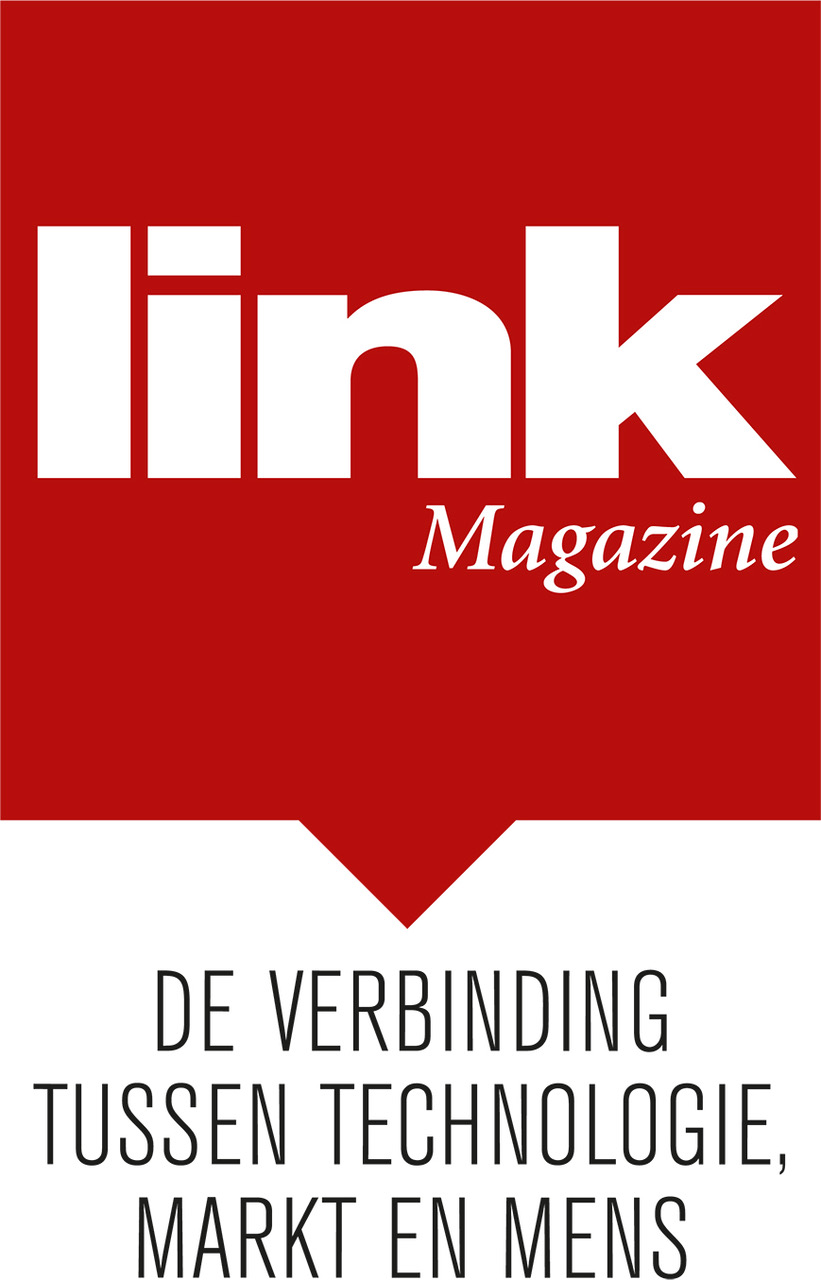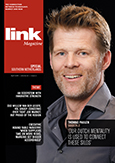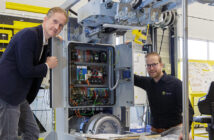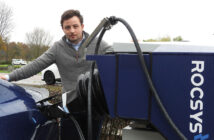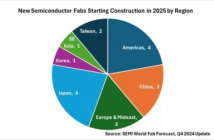The Dutch manufacturing industry is known for its collaborative culture, which has its origins in the history of the large Philips corporation. This is no longer limited to the production that the large OEMs –Philips, which focuses on health technology nowadays, and colleagues such ASML, DAF and Océ – contract out to suppliers. For their innovation, they are also looking for collaboration, not only in new technologies and production techniques but also in trends in society.
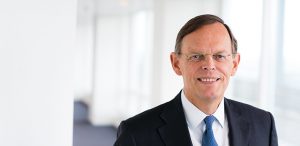
Hans de Jong, president of Philips Nederland: ‘Suppliers do not have to go so far as to enter into a dialogue with end users and patients themselves, but they do need to understand what world Philips operates in.’ Photo: Philips
OEMs and suppliers in dialogue about new technologies and trends in society
Philips has two large sites in the Netherlands: in Best (near Eindhoven) for the medical imaging systems, such as its showpiece Azurion, and in Drachten (in the north of the Netherlands) for the mass production of personal-health products, such as shavers. ‘In Best we concentrate on research, development and assembly of complex system solutions that we supply to hospitals for example’, says Hans de Jong, president of Philips Nederland (approx. 12,000 employees). ‘The design of a system is composed of building blocks, modules, and for each block we decide whether we handle it in-house or have a partner take care of it. We once started by contracting out production, now we’re increasingly working with development partners such as Frencken, KMWE, Prodrive and VDL. We enter into a dialogue with them about what we can entrust to them and what we’ll do in-house. Our products are developing continuously: new technologies and other manufacturing methods arise and we’re going to make a giant step in digitisation. For each module we’ll go for the best fit. Step by step, suppliers are given more responsibility.’
THEME: AN ECOSYSTEM WITH INNOVATIVE STRENGTH
Co-engineering
Specialising in high-mix, low-volume, high-complexity machining, mechatronic assembly, and development & engineering, KMWE (500+ employees) is a leading supplier in Eindhoven. CEO Edward Voncken sees that the trend of co-engineering – clients involving suppliers in product development at an early stage – is continuing. ‘Our engineering department has grown substantially, to about forty employees now. We’re active in engineering all around the globe. We have a dedicated site in India, we will expand our production and engineering capacity in Malaysia, and we are already collaborating with engineering firms in the US, where we intend to set up in-house production, possibly through a takeover. Collaboration with specialised firms, also here in the Netherlands, enables us to offer our customers a complete engineering and manufacturing package.’

Edward Voncken, CEO KMWE Group
Smart Industry
KMWE is putting at least as much energy in process innovation or ‘Smart Industry’. As such, the firm is a pioneer and will be the first occupant of the Brainport Industries Campus (BIC) in Eindhoven this summer. ‘As many as 100 firms from all segments of the chain will be collaborating there on all sorts of projects, on technical, social and business innovation.’ Voncken refers especially to various Smart Industry Field Labs, dedicated to themes such as additive manufacturing and standardisation of the digital chain communication. In the southern Netherlands, Philips is chiefly involved in these developments through its suppliers, says Hans de Jong. ‘We’re discussing new manufacturing technologies with them, such as additive manufacturing, to see whether we can find smarter ways of manufacturing certain components.’ Philips’ focus on smart industry is in Drachten, where highly automated high-volume production takes place. ‘In Best the high-tech is found more in the imaging technology in our systems and the underlying powerful image processing software. Of course we’re working there on such things as big data, analytics and artificial intelligence. These will play an increasingly more important role in our products, but possibly also in our production in the future.’
Education and knowledge sharing
Education and training is one of the areas in which chain partners are collaborating increasingly intensively, because the shortage of technically trained staff is a common problem. Various educational institutes are setting up shop at the BIC, a move that De Jong applauds. Although Philips is very popular as an employer – and due to the focus on health technology, it has only become more so because the young generation values socially relevant work – the company is facing increasing difficulty attracting enough technically trained people. ‘Due to all kinds of campaigns, the number of first-year students has risen in higher education, but the number in intermediate vocational education is still too low, which is giving us cause for concern.’ Philips is therefore taking many initiatives to boost interest in technical studies. ‘These are not specifically targeted at Philips but more broadly at the region, where there is chain dependence as well.’
The shortage of people can partly be compensated for by making more efficient use of the available knowledge. A recent initiative taken by ASML is the Knowledge Sharing Centre (KSC), in which KMWE participates as well, says Edward Voncken. ‘The aim is to share the know-how of the engineers of ASML and other OEMs at the KSC – in the area of design rules for instance – with the educational institutes and the suppliers’ engineers at the campus, promoting its dissemination throughout the campus.’ The same applies to the model-based way of working. When all parties are working on one and the same 3D model of a product, they must all follow the same design rules and be able to communicate digitally in the same, standardised manner.’ ‘This applies to the entire chain.’
Original design manufacturer
Fellow supplier Frencken Europe (450 employees in the Netherlands and the US, over 1,000 employees in the rest of the division in Asia) is looking for a position higher up in the chain. The specialist in machining and mechatronics is part of the Singapore-listed Frencken Group, a global high-tech capital and consumer equipment service provider. ‘A number of parties know us as a contract manufacturer’, explains Theo Kok, global director of technology. ‘But we wish to offer more added value by helping them in the development and optimisation of their products. We can do so by submitting proposals for improvement or by assuming complete responsibility for the modules that are not part of the customer’s core business but that are key to their success in the market.’ Managing director Fokko Leutscher describes this latter role as original design manufacturer: making a design and taking care of production based on the customer’s functional specifications and our own technology road map. Kok says, ‘That road map must of course be aligned with what our customers want. We have therefore decided which technologies we will invest in to be able to make the difference for our customers in a number of years. These include motion control and vacuum technology.’
Intellectual property
This method of collaboration is deeply rooted in Eindhoven, but in Kok’s and Leutscher’s experience, foreign customers are also receptive to it. ‘In Germany, for example, a relationship often starts on a build-to-print basis (production according to a drawing supplied by the customer, ed.). If that is successful and the customers start to grow, they begin to think more about their core business is and what they’d better contract out. This is a delicate, yet inevitable discussion.’ One of the topics is intellectual property (IP). ‘We constantly need to define what is core business for the customer, what sets them apart from the competition and hence what remains their IP, and what is key but not unique to them, what we as Frencken can develop IP for and use for other customers as well. Obviously, we exercise great caution in that regard.’ Frencken holds these discussions particularly with existing customers. ‘With new customers, whose growth and learning curve tends to be steep, it is often easier to show our added value as a technology partner.’
Global presence
An important ‘asset’ in the talks is the Frencken Group’s global presence – like that of the KMWE Group – in Europe, Asia and the US, Fokko Leutscher continues. ‘Our customers have a global footprint and would like us to handle their production ‘round the corner’, with a view to costs and communicating in the same language and time zone. It’s becoming increasingly local for local.’
Philips does not insist on suppliers following their customer, De Jong responds. ‘It is of course convenient if parties we know and trust well are nearby. However, we don’t have a chain exclusively for Philips and actually encourage suppliers to work for multiple clients, so they gain knowledge that is interesting for other parties. For large components that do not add a great deal of value, such as panels, we seek out local suppliers and are sometimes even forced to do so by governments. However, our suppliers here can ship high-tech assemblies to one of our sites elsewhere.’
So, as far as De Jong is concerned, there is a future for production in the Netherlands, a ‘country with a fantastic business climate’. ‘Everything has become better and more customer-specific; this requires that production is close to the knowledge. Moreover, lead times are increasingly under pressure. That is where the opportunities lie for the manufacturing industry in the Netherlands, provided that it continues to invest such things as training, digitisation and smart industry, and people continue to hone their skills.’
Social context
To increase their share in innovation, suppliers must not only broaden and deepen in a technological sense, Hans de Jong concludes. ‘The broader context becomes increasingly important at Philips. It is about new technologies and about the trends in care, which is shifting from curative to chronic. If we wish to continue to support patients after treatment, what does this mean for our products? The challenge we and our suppliers are up against is to match the range of fundamentally new, disruptive technologies, such as digitisation, artificial intelligence and 3D printing, with demand. By focusing much more on the question of how we can support the patient as a human being, we are bringing innovations that will transform the care landscape and add value for the patient. Suppliers do not have to go so far as to enter into a dialogue with end users and patients themselves, but they do need to understand what world and what care sector Philips operates in and what implications this has for our system solutions. Collaboration is in Philips’ DNA and we’re looking for the same in our suppliers.’
